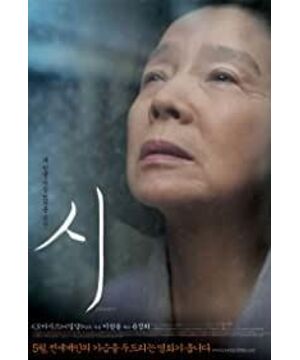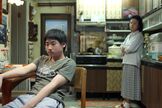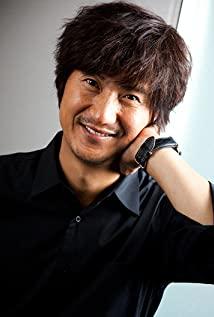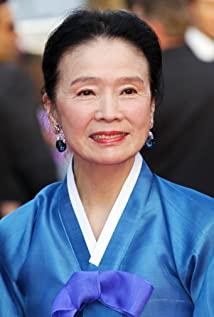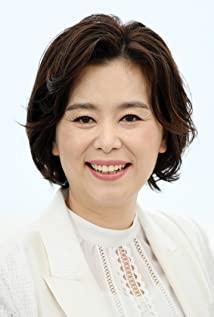"Poetry" (2010) describes the birth process of "The Song of Agnes". It is poetic in a selfish and indifferent social atmosphere, intertwined with disgust for the crowd and compassion for life, like a dance on the ruins. Romance, melancholy, and breathtaking: darkness is eternal, so is light; death not only cannot stop the yearning and pursuit of beauty, it can even be like the beautiful boy Naxos who admired his reflection and fell into water in Greek mythology. Become a way to pursue beauty.
The third grade girl Park Jizhen (English name Agnes) could not tolerate sexual violence on campus and threw herself into the water angrily. In order to cover up this major scandal, the school formed a united front with the parents of the six violent students, trying to settle the media, the police and the families of the deceased, and settled the matter with a solace of 30 million. Korean Democratic Party member Choi Minsun resolutely acted as the school's director of teaching, portraying politicians vividly, forming a wonderful double irony to South Korean society: "I told Ji Zhen's head teacher absolutely not to say it. This is good for the children's future and the school. Everyone must keep it strictly confidential, even talking in dreams.”
Think of the Korean poet Wen Zhongcheng’s "Death": Sooner or later you will become a hypocrite/shadow without eyes, nose, ears and mouths if you survive in a hypocritical crowd. Sometimes you also become a shadow.
Suffering from amnesia, Yang Meizi does not want to be such a shadow. She is a part-time worker to supplement her family. She loves life and dresses fashionable. At the age of 66, she is still listening to poetry lectures. As the grandmother of Zhong Xu (one of the violent students), Miko faces tremendous financial and spiritual pressure and must raise 5 million won (about 30,000 yuan) to comfort the families of the victims. Zhong Xu, who is keen on video games and entertainment shows, looks careless, but not useless. He also plays badminton with his grandmother in his free time. This limited non-verbal communication makes the generation gap more conspicuous.
Lee Cangdong has always had a cold eye for mainstream South Korean religions, and "The Poetry" is no exception. The pastor celebrated Mass for Ji Zhen, and his empty and flashy rhetoric was even more hypocritical than reality: "She who left the world, join the ranks of saints." I don't know where the truth and justice are, talk about saints extravagantly! Miko, who escaped from the church, nursed a president with hemiplegia and crooked mouth and eyes, and the reward was limited. The president, who needs help even in the bath, swallows Viagra, hoping that Mizi will give him a hug; the parents of Zhong Xu are rich and expensive, and they speak more beautifully than singing, but they refuse to lend Mizi. Suggested that she ask for help from Zhong Xu's mother. Under urging, the desperate Miko, went all out to let the president become a man.
The restrained and plain scenes flowed with irresistible irony and anger towards South Korean Hyundai Ah Q: Parents believe that Miko, who is also a woman and lives with her grandson, should visit Ji Zhen’s mother to gain sympathy, if she cries bitterly. The effect will be better. During the communication with Ji Zhen's mother, Meizi praised how "sincere" and delicious the apricots fell on the ground, and could not say anything against her will.
"Dream of Red Mansions" Xiangling learns poems, "I have no intention of eating and drinking, and I can't sit still." However, the environment is so dirty, where does the poetry and picturesqueness come from? No matter how hard he observes and asks teachers and poet friends for advice, Miko, who is entangled in her grandson's sins, still cannot write poems.
Police Officer Park, who exposed the corruption of the Seoul Police Agency and was excluded from the countryside, said every time he recites his poems, he would tell everyone a joke to make everyone happy: "When it comes to bathing, there are five steps: the first step is to take a bath, and the second step is to lie down. , The third step is stopped, the next step is inserted, the last step, thank you." Inadvertently poked Miko's sore spot.
Zhong Xu was finally taken away by the police. The kind-hearted police officer Park, casually went on to play badminton with Mizi. Like a relieved Miko, the poem is booming, and he wrote the first poem "Song of Agnes" to Ji Zhen: How about that place, how lonely/Can you hear the birds singing/I can’t put a stamp on the letter, you Can you receive it/If it is too late to confess, can it be passed/Time goes by, does the rose thank you?
Narcissus died for beauty, "Song of Agnes" implies that Ji Zhen followed in his footsteps, cherished and pursued her pure and beautiful past. Ji Zhen is full of nostalgia for her hometown and relatives: an alley as old as his father’s face/I love so much, in your weak breath/Heart is beating so much/I bless you/Before the sword reaches the river bank, I The soul is breathing desperately.
Dates that failed to make an appointment, secret love affair that has ended before opening, the beautiful poetry forms a strong contrast with the rough and ugly reality. "The Song of Agnes" has a profound understanding and sympathy for the death of a young girl, which is far from the "lamb body" that won the Lu Xun Literature Award. "Poetry" appeared at the Cannes Film Festival this year. More than 2,000 spectators at the Lumiere Theater stood up to cheer and applaud Lee Cangdong for more than 7 minutes. The Grand Bell Awards hosted by South Korea was even more coquettish. (Xinmin Weekly)
View more about Poetry reviews


